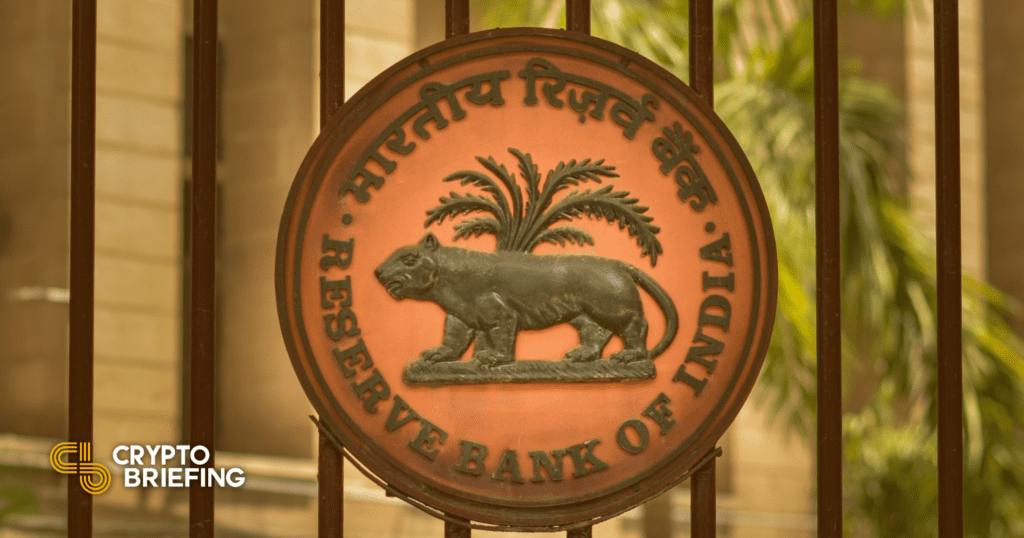
Shutterstock photo by PhotographerIncognito
India Central Bank Official Calls for Crypto Ban
RBI's deputy governor says that a crypto ban is "perhaps the most advisable choice."
Shri T. Rabi Sankar, Deputy Governor of the Reserve Bank of India (RBI), called for a ban on cryptocurrency during a speech on Feb. 14.
Deputy Governor Calls for Crypto Ban
The Deputy Governor of the Reserve Bank of India has joined the list of central banking officials openly hostile to cryptocurrencies.
In his speech, Rabi Sankar called cryptocurrency an “ideology” in addition to a technology. He added that cryptocurrency “is underpinned by a philosophy to evade government controls [and has] specifically been developed to bypass the regulated financial system.”
He also said that cryptocurrencies cannot reasonably be defined as a currency, have no underlying cash flows, undermine KYC/AML regulations, and pose a threat to India’s banking and monetary system as well as its financial sovereignty.
Rabi Sankar additionally suggested that cryptocurrencies have no intrinsic value and are akin to Ponzi schemes, reiterating comparisons to tulip mania made by RBI’s head governor on Feb. 10.
“All these factors lead to the conclusion that banning cryptocurrency is perhaps the most advisable choice open to India,” Rabi Sankar concluded at the end of his speech.
Anti-Ban Arguments Were Considered
Rabi Sankar also considered various arguments against a ban. First, he drew attention to the argument that advanced economies typically do not impose crypto bans. In turn, he argued that India is not an advanced economy and warned that companies that privately issue cryptocurrencies could control India’s economic policy.
He also opposed the idea that a ban on cryptocurrency could lead to a loss of wealth for private investors. Rabi Sankar claimed that it is unclear how many private crypto investors exist, said that crypto investors are aware of the risks, and said that an exit can be provided so that those investors do not lose money.
Rabi Sankar also noted that some have suggested a crypto ban should not be imposed due to the difficulty of enforcing such rules.
He argued that such difficulties “reinforce the need for a ban, rather than invalidate it.” However, he did admit that it could be “futile to regulate cryptocurrencies” due to the fact that most cryptocurrencies are, by definition, outside of government control.
Indian Government Has Little Interest in a Ban
The Reserve Bank of India has previously taken a harsh stance on cryptocurrency. Reports from December 2021 suggest that the bank favored a complete ban on cryptocurrency during a board meeting.
Imposing a ban would likely require cooperation with the Indian government, which appears to have little interest in banning cryptocurrency. Though reports in November suggested a looming ban on crypto, a former finance minister who drafted the bill suggested that an all-encompassing ban is unlikely.
India has previously had regulatory strife around crypto. The country prohibited banks from handing crypto beginning in 2018 but overturned the ban in March 2020. The Reserve Bank of India reaffirmed that banks can work with crypto in mid-2021.
Disclosure: At the time of writing, the author of this piece owned BTC, ETH, and other cryptocurrencies.
